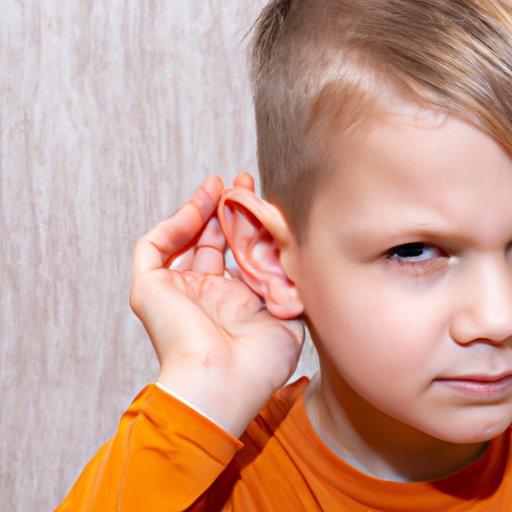Treating Ear Infections: Tips and Home Remedies
Ear infections are a common problem, especially in children. An ear infection occurs when there is an inflammation or infection in the ear. It usually affects the middle ear, which is located behind the eardrum. However, it can also affect the outer or inner ear. Ear infections can be very painful and cause significant discomfort. In this article, we will explore the best ways to treat an ear infection so that you can ease the pain and discomfort.
Common Causes of Ear Infections
Ear infections can be caused by different factors. Some of the most common causes of ear infections include:
Bacteria
Bacterial infections can cause ear infections. Most bacterial ear infections are caused by Streptococcus pneumoniae, Haemophilus influenza, or Moraxella catarrhalis. Children are more prone to bacterial infections that can cause ear infections.
Viruses
Similarly, viral infections can also cause ear infections. Viral infections can cause inflammation and fluid buildup in the middle ear. Some of the common viruses that can cause ear infections include influenza, rhinovirus, and respiratory syncytial virus.
Environmental factors
Environmental factors such as changes in altitude, exposure to cigarette smoke, and seasonal allergies can also contribute to the development of ear infections.
Types of Ear Infections and Symptoms
There are different types of ear infections, and they have different symptoms. Here are the most common types of ear infections:
Outer ear infection (otitis externa)
Otitis externa, also known as swimmer’s ear, is an infection of the outer ear canal. This type of ear infection can be caused by different bacteria or fungi. The symptoms of otitis externa include ear pain, itching, and redness of the ear canal. You may also experience some discharge from the ear.
Middle ear infection (otitis media)
Otitis media is the most common type of ear infection. It occurs when the middle ear becomes inflamed or infected. The symptoms of otitis media include ear pain, fever, difficulty hearing, and fluid buildup in the middle ear.
Inner ear infection (otitis interna)
Otitis interna, also known as labyrinthitis, is an infection of the inner ear. It can be caused by bacterial or viral infection. The symptoms of otitis interna include dizziness, nausea, vomiting, and difficulty balancing.
Home Remedies for Mild Ear Infections
For mild ear infections, you can try some home remedies to ease the symptoms. Here are a few remedies that you can try at home:
Warm compress
Placing a warm compress on the affected ear can help to relieve pain. You can use a warm cloth or a heating pad. Be careful not to use anything too hot, as it can cause burns.
Garlic oil
Garlic has antimicrobial properties that can help to fight infection. Garlic oil can be used to soothe the ear and relieve pain. You can make garlic oil at home by crushing a few cloves of garlic and mixing it with some olive oil. Put a few drops of the mixture in the affected ear.
Over-the-counter ear drops
Over-the-counter ear drops can help to relieve pain and inflammation. These drops can be purchased at your local pharmacy. Be sure to follow the instructions carefully.
Tips for relieving pain
You can also take pain relievers such as ibuprofen or acetaminophen to ease the pain. Be sure to consult with your doctor before taking any medication.
Over-the-Counter Treatment Options for Ear Infections
In some cases, over-the-counter treatment options may not be enough to treat an ear infection. If the symptoms persist or become more severe, you may need prescription medication. Here are some of the common treatments for ear infections:
Antibiotics
Antibiotics are commonly prescribed for bacterial ear infections. They work by killing the bacteria that cause the infection. Be sure to finish the entire course of antibiotics prescribed by your doctor.
Painkillers
Painkillers such as acetaminophen or ibuprofen can help to relieve pain and reduce fever.
Decongestants
Decongestants can help to relieve congestion in the nasal passages. They can help to reduce the amount of fluid in the middle ear, which can alleviate the symptoms of an ear infection.
Advanced Ear Infection Treatment
In some cases, advanced ear infection treatment may be necessary. Here are some options:
When to seek medical attention
Seek medical attention if your symptoms persist or become worse. You should also seek medical attention if you develop a fever, severe pain, or if there is drainage from the ear.
Surgical options
In severe cases, surgery may be necessary to drain the fluid from the middle ear. Surgery may also be required to repair a damaged eardrum.
Prevention Tips
Here are some tips to prevent ear infections:
Practicing good ear hygiene
Keeping the ears clean and dry can help to prevent infections. Use a soft cloth to clean the outside of the ear. Don’t use cotton swabs in the ear canal, as they can push wax deeper into the ear.
Avoiding allergens that can cause ear infections
Allergies can cause inflammation in the ear and make you more susceptible to infections. Avoid exposure to allergens such as pollen, dust, and pet dander.
Other prevention tips
Other prevention tips include avoiding cigarette smoke, getting vaccinated against influenza and pneumococcal disease, and reducing exposure to people with colds or flu.
Conclusion
Ear infections can be very painful and uncomfortable. Treating them promptly is important to prevent complications. If you experience symptoms of an ear infection, try some of the home remedies listed in this article. If your symptoms persist, seek medical attention. Remember to practice good ear hygiene and follow good infection prevention practices to reduce your risk of developing ear infections.
